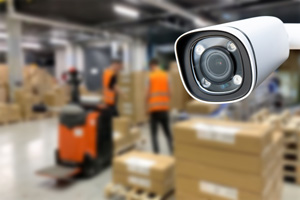 In today’s age of technology, many employers are using various forms of surveillance to monitor employees’ activities in the workplace. However, there are strict laws in place to protect employee privacy. California Penal Code Section 647 states it is illegal to put surveillance cameras in restrooms, showers, dressing rooms, locker rooms, fitting rooms, and bedrooms. If you suspect your employer violated your privacy in the workplace, contact an experienced employment lawyer as soon as possible.
In today’s age of technology, many employers are using various forms of surveillance to monitor employees’ activities in the workplace. However, there are strict laws in place to protect employee privacy. California Penal Code Section 647 states it is illegal to put surveillance cameras in restrooms, showers, dressing rooms, locker rooms, fitting rooms, and bedrooms. If you suspect your employer violated your privacy in the workplace, contact an experienced employment lawyer as soon as possible.
While it is common for California employers to use surveillance cameras in the workplace, specific types of surveillance are prohibited under state law. Generally, surveillance cameras are forbidden in areas where an employee might reasonably expect privacy. At Blackstone Law, we fight for your legal rights and compensation if your employer has violated your privacy in the workplace.
Types of Workplace Surveillance Allowed in California
In California, employers are allowed to conduct certain types of surveillance in the workplace, including the following:
- Electronic communications: Employers are permitted to monitor electronic communications such as emails, instant messaging, and text messages sent on company-owned devices or accounts.
- Computer activity: Employers can monitor employee computer activity, including internet browsing history, as long as the monitoring is done for legitimate business reasons and the employee has been informed.
- Video surveillance: Employers are permitted to install video surveillance in the workplace as long as the surveillance does not invade the employee’s privacy. For example, video cameras cannot be installed in areas where employees change clothes or use the restroom.
- GPS tracking: Employers can use GPS tracking to monitor company-owned vehicles and equipment, but they must obtain employee consent before tracking personal vehicles.
- Drug and alcohol testing: Employers can conduct drug and alcohol testing under certain circumstances, such as after a workplace accident or as part of a random testing program. However, testing must be done in a non-invasive manner.
Employers are authorized to install surveillance cameras and record their employees when the surveillance is in the interest of their business, which means they can legally record employees in common areas and public locations in the workplace. Examples may include break rooms and office spaces. There is a reasonable expectation of privacy in office spaces but not in the lobby of the office or in public corridors.
However, it is important to note that surveillance laws do not concern only the visual. Under California Penal Code Section 632, employers cannot record audio of confidential conversations without the proper consent of involved parties.
Employee Rights and Protections in California
Employers have a duty of care to ensure their employees are safe no matter where they work. In the workplace, duty of care refers to the obligation that they do all they can within reason to promote the health, safety and wellbeing of their employees. This includes ensuring they’re not illegally surveilling over their personnel. You may be eligible to seek legal action against your employer for installing surveillance cameras in the workplace if you can prove the following elements:
- You possessed a legally protected privacy interest
- You had a reasonable expectation of a right to privacy, which was violated by the use of the surveillance camera or other monitoring devices
- You suffered an invasion of privacy and can show the intrusion is serious in nature, scope, and actual or potential impact
- You suffered harm due to the violation of privacy and surveillance
In the context of duty of care, “harm” must be a “reasonably foreseeable” result of the defendant’s conduct. Speak with an experienced employment lawyer to understand your legal options if your privacy has been violated by your employer’s surveillance in the workplace. You may recover compensation for the harm that you have suffered.
Speak With the Leading Employment Lawyers at Blackstone Law
Employers must balance their need to monitor and ensure productivity in the workplace with an employee’s right to privacy. The employment lawyers at Blackstone Law deliver aggressive representation and exceptional legal guidance so you may obtain the justice you deserve. We can help determine whether your employer violated California privacy laws by using surveillance devices in areas you reasonably expected privacy.
Contact us for a free consultation by calling (310) 956-4054 or filling out our contact form today.

